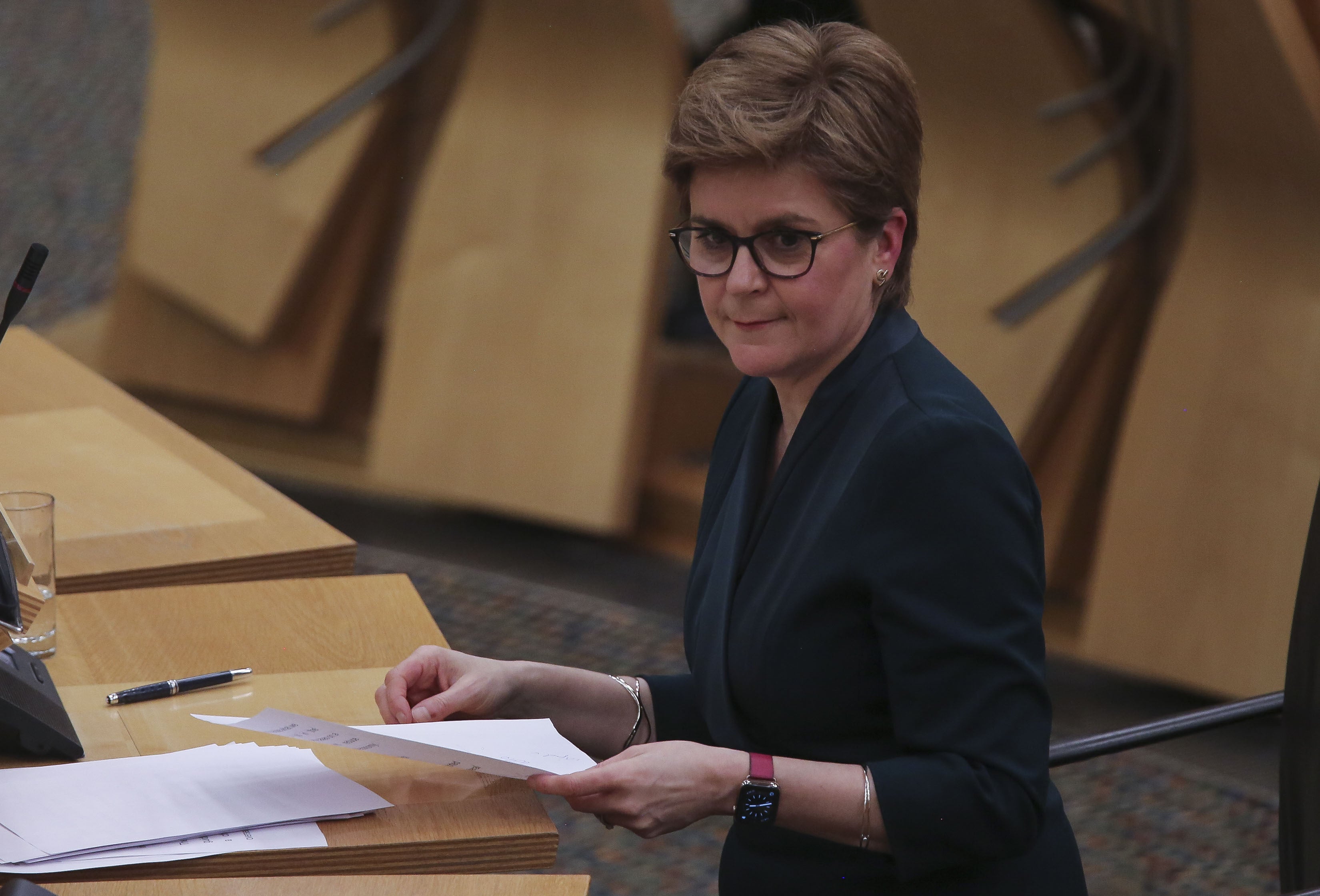Nicola Sturgeon issues formal apology to thousands of women executed as witches
The First Minister branded their treatment as being ‘injustice on a colossal scale’.

Your support helps us to tell the story
From reproductive rights to climate change to Big Tech, The Independent is on the ground when the story is developing. Whether it's investigating the financials of Elon Musk's pro-Trump PAC or producing our latest documentary, 'The A Word', which shines a light on the American women fighting for reproductive rights, we know how important it is to parse out the facts from the messaging.
At such a critical moment in US history, we need reporters on the ground. Your donation allows us to keep sending journalists to speak to both sides of the story.
The Independent is trusted by Americans across the entire political spectrum. And unlike many other quality news outlets, we choose not to lock Americans out of our reporting and analysis with paywalls. We believe quality journalism should be available to everyone, paid for by those who can afford it.
Your support makes all the difference.Scotland’s First Minister has made a formal apology to the thousands of women who were “villified” and executed after being accused of being witches.
Nicola Sturgeon said that those Scots who were accused under the Witchcraft Act of 1563 had suffered an “egregious historic injustice” which saw many killed “just because they were women”.
Ms Sturgeon branded this “injustice on a colossal scale”, adding that it was “driven at least in part by misogyny in its most literal sense, hatred of women”.
An estimated 4,000 Scots were accused of being witches between 1563 and 1736, under the terms of the Witchcraft Act of 1563.
I am choosing to acknowledge that egregious, historic injustice and extend a formal posthumous apology to all those accused, convicted, vilified or executed under the Witchcraft Act 1563
Speaking in Holyrood on International Women’s Day, Ms Sturgeon said: “At a time when women were not even allowed to speak as witnesses in a court, they were accused and killed, because they were poor, different, vulnerable or, in many cases, just because they were women.”
Campaigners have brought a petition to Holyrood calling for an apology and a pardon for those accused and convicted as witches under the Witchcraft Act 1563.
Ms Sturgeon said: “Those who met this fate were not witches, they were people, and they were overwhelmingly women.”
While she said the Scottish Parliament may in the future pass the legislation necessary to pardon them, she noted that the petition, brought by the Witches of Scotland campaign, was also seeking an apology.
Ms Sturgeon said: “Today, on International Women’s Day, as First Minister on behalf of the Scottish Government, I am choosing to acknowledge that egregious, historic injustice and extend a formal posthumous apology to all those accused, convicted, vilified or executed under the Witchcraft Act 1563.”
She added: “Some will ask why this generation should say sorry for something that happened centuries ago, it might actually be pertinent to ask why it has taken so long.”
The First Minister went on to explain that “acknowledging injustice, no matter how historic, is important”, noting Holyrood had issued a formal apology to men arrested and convicted for being gay before homosexuality was legalised.
“Reckoning with historic injustice is a vital part of building a better country,” Ms Sturgeon told MSPs.
She went on: “For some this is not yet historic, there are parts of our world where even today women and girls face persecution and sometimes death because they have been accused of witchcraft.
“And thirdly, fundamentally, while here in Scotland the Witchcraft Act may have been consigned to history a long time ago, the deep misogyny that motivated it has not. We live with that still.”
Subscribe to Independent Premium to bookmark this article
Want to bookmark your favourite articles and stories to read or reference later? Start your Independent Premium subscription today.